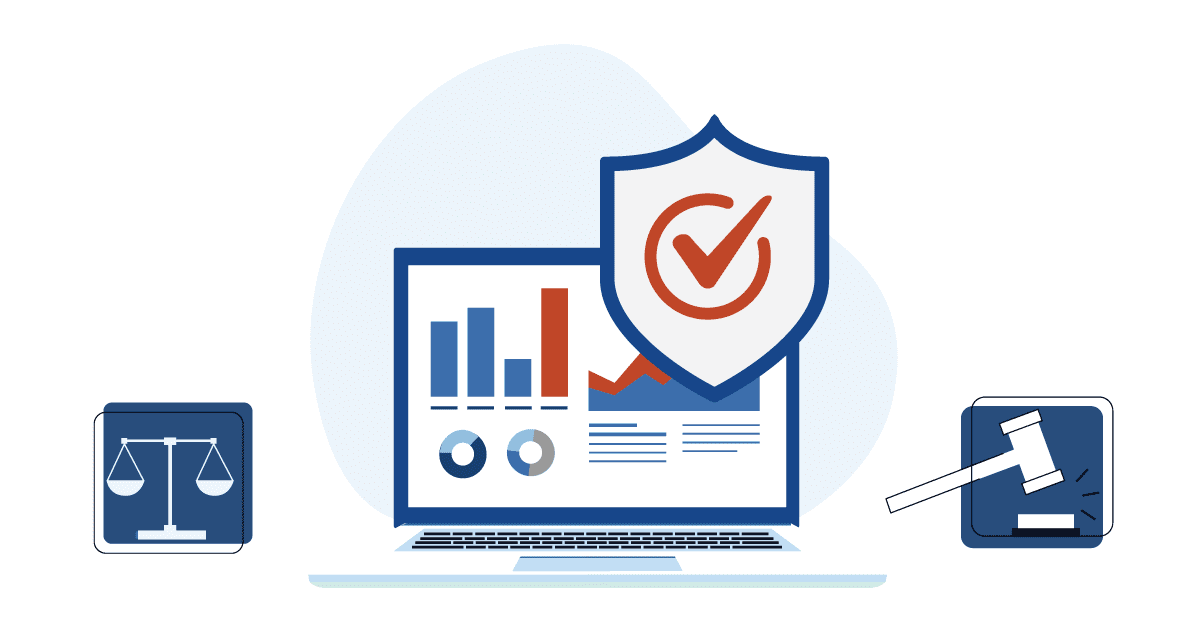
In today’s complex business world, safeguarding against fraud and financial mismanagement has become a critical priority for business owners. The threat of fraudulent activities looms large, and without robust internal controls, even the most well-established enterprises can fall victim to unscrupulous actions. According to the 2020 Association of Certified Fraud Examiners’ Report to The Nations, an average fraudulent case results in a monthly loss of $8,300.
Understanding Internal Controls: A Pillar of Business Integrity
Internal controls are the mechanisms, processes, and procedures put in place by an organization to ensure that operations are conducted efficiently, effectively, and in compliance with laws and regulations. They act as a safeguard against errors, fraud, and unethical behavior, providing a sturdy framework for transparent and accountable business operations.
The Importance of Strong Internal Controls
- Fraud Prevention: Fraudulent activities can have devastating financial and reputational consequences for businesses. Strong internal controls act as a barrier against unauthorized access, unauthorized transactions, and other fraudulent schemes.
- Risk Mitigation: Internal controls identify potential risks and vulnerabilities within your business processes. By addressing these risks proactively, you can minimize the likelihood of adverse events and their associated consequences.
- Operational Efficiency: Well-designed controls streamline processes and minimize inefficiencies. This ensures that resources are allocated effectively, and operational objectives are achieved with precision.
- Financial Accuracy: Internal controls promote accuracy in financial reporting. By ensuring the integrity of financial data, internal controls enhance decision-making and foster trust among stakeholders.
- Regulatory Compliance: Regulatory agencies require businesses to adhere to specific guidelines and standards. Strong internal controls help ensure compliance with these regulations, mitigating the risk of penalties and legal repercussions.
Components of Internal Controls
- Segregation of Duties: Distribute responsibilities among multiple employees to prevent any one individual from having too much control over a process. This minimizes the risk of fraud, as collusion becomes more difficult.
- Authorization and Approval: Establish clear processes for authorizing and approving transactions. This ensures that all financial activities are legitimate and properly documented.
- Documentation and Recordkeeping: Thorough documentation of transactions, policies, and procedures provides a clear audit trail. This transparency helps in identifying anomalies and discrepancies.
- Physical Security: Safeguard physical assets, such as inventory and cash, with appropriate security measures. Restricted access and regular audits can prevent theft and unauthorized use.
- Regular Reconciliation: Reconcile financial records regularly to detect discrepancies and errors. Bank reconciliations, for example, help ensure that recorded transactions match actual account activity.
- Data Security: Protect sensitive financial and customer data from cyber threats. Implement cybersecurity measures, such as encryption and firewalls, to prevent data breaches.
Educating Employees: A Cornerstone of Effective Internal Controls
Educating your employees about the importance of internal controls is essential for success. Foster a culture of integrity and accountability by:
- Conducting regular training sessions on internal controls, fraud prevention, and ethical behavior.
- Encouraging employees to report any suspicious activities or discrepancies they encounter.
- Implementing a confidential reporting mechanism, such as a whistleblower hotline, to ensure employees feel comfortable reporting potential issues.
Partnering with Experts for Comprehensive Protection
While strong internal controls are an integral part of your defense against fraud, partnering with experts like NOW CFO consultants can provide an additional layer of security. With a wealth of experience and comprehensive training, our adept consultants are poised to uncover opportunities and facilitate the seamless integration of internal controls within your organization. This encompasses shielding your enterprise from fraudulent activities, rectifying operational inefficiencies, and ensuring adherence to company policies. Neglecting these aspects can lead to reduced profitability, squandered time, and diminished efficiency and confidence in your business. Thus, confronting these challenges head-on, armed with the right expertise and experience, is paramount. As you fortify your business’s financial foundation with effective internal controls, you build a resilient future that can weather challenges and thrive in an ever-changing landscape.














